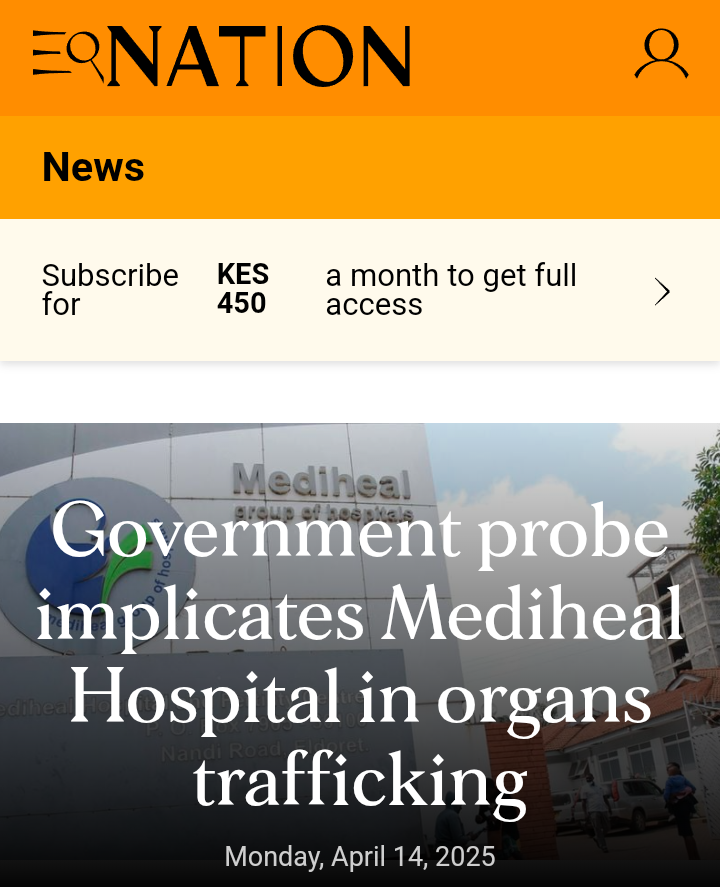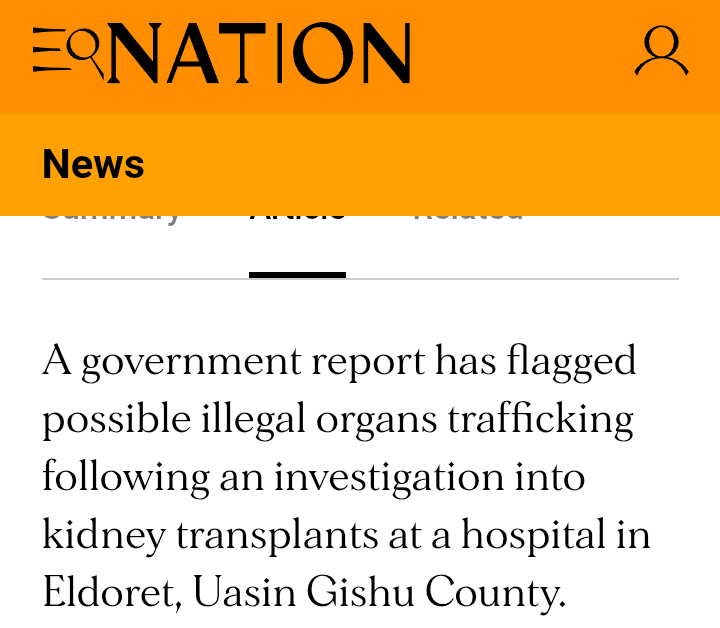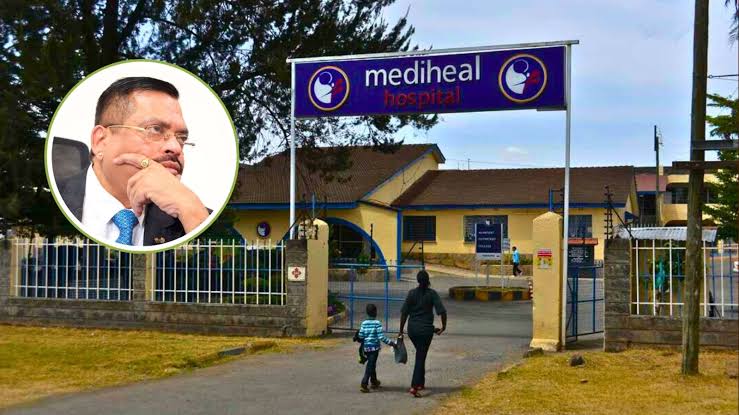Mediheal Hospital, a once-respected medical institution in East Africa, now finds itself deep in a storm of accusations. Owned by Dr. Swarup Mishra, popularly known as Mishra Kiprop, the hospital has been linked to a dangerous web of organ trafficking.
A recent government report paints a disturbing picture, suggesting the facility has been a key player in unethical kidney transplants and possibly worse. What began as whispers has turned into a full-blown scandal that threatens to collapse not only Mishra’s empire but also his reputation.

Dark Dealings Behind Transplants
Since 2018, Mediheal has reportedly conducted over 370 kidney transplants. At first glance, this could be seen as progress in medical services. However, deeper investigations by the Kenya Blood Transfusion and Transplant Service raised serious concerns. Many transplants involved strangers donors and recipients with no biological or social ties.
This raises the possibility of commercial transactions, which is illegal and unethical. Further adding to the suspicion, some transplants involved Israeli nationals and other foreigners who flew in for surgery and left immediately after.
This suggests an organized system where foreign recipients receive organs from desperate Kenyan donors. Reports also point out that Indian doctors were performing these operations some even alleged to have connections with global organ trade rings.
Global Exposure and Exploitation
The scandal did not stay within Kenya’s borders. International journalists from Germany uncovered a well-oiled trafficking operation using Mediheal’s facilities. Vulnerable young Kenyans were allegedly offered a few thousand dollars to sell their kidneys. One victim, Amon Kipruto Mely, sold his kidney for a mere $6,000. The profits made from these organs, however, were likely in the tens of thousands.
A company named Medlead is believed to have coordinated the trades, funneling organs from Kenya to Europe. It is now clear, that Mediheal was not just turning a blind eye it may have been actively participating in human exploitation.
Shakahola Massacre Connection
The horror doesn’t end there. Investigators also believe there may be a link between Mediheal Hospital and the Shakahola massacre, where followers of cult leader Paul Mackenzie died in mysterious circumstances.
Several exhumed bodies were found with missing organs, prompting speculation about organ harvesting. Reports allege that phone records show regular contact between Mishra Kiprop and Mackenzie. While these allegations have not been fully proven, the idea that a hospital owner might benefit from a religious cult’s mass deaths is sickening.
Mishra and Mediheal have denied the claims, but many believe there’s more than enough smoke to suggest fire.

A Controversial Political Appointment
Despite all these troubling developments, Mishra was recently appointed by President William Ruto to head the Kenya Biovax Institute Limited. This government body plays a key role in vaccine production. The timing of the appointment is questionable. Why would someone facing such serious accusations be given a powerful new role in public health? Critics believe the appointment is political reward. After years of silence, Mishra declared his loyalty to Ruto and joined his party, the United Democratic Alliance. A few months later, he was handed a plum position. To many Kenyans, this feels like a slap in the face, rewarding scandal rather than punishing it.
Financial Struggles May Explain Desperation
Mediheal Hospital’s recent financial collapse could be part of the reason behind these murky dealings. After years of expansion, the hospital is now heavily in debt. Reports from 2024 show that the hospital has been struggling to pay suppliers and meet its obligations.
It’s possible that in a bid to stay afloat, the hospital turned to the illegal organ trade to make ends meet.Even if this theory is true, it does not justify the harm caused. Exploiting poor Kenyans for profit is not just illegal it’s deeply immoral.
Mishra’s Legacy Tarnished
Mishra Kiprop once stood as an example of success a man who came to Kenya with very little and built a health empire.
But now, that story is being rewritten. His name is no longer associated with life-saving care, but with accusations of death, greed, and exploitation.
Whether it’s the suspicious transplants, the Shakahola links, or the questionable political favor, one thing is clear, Mishra’s legacy is collapsing under the weight of scandal.
It is time for proper investigations, transparency, and accountability. Kenya cannot afford to ignore these signs any longer. Public health is too important to be left in the hands of individuals facing such serious accusations.





















Add Comment